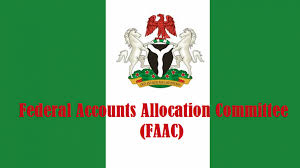Mixed reactions as CBN unifies FX windows

*CBN must ensure unification does not cause massive distortions in price level-Prof Uwaleke
*Unification has huge potential for investment, jobs, and capital flows-CPPE
*As Naira hits N755/ at I& FX rate
Mixed reactions have been trailing the Central Bank of Nigeria (CBN) announcement that it has unified all segments of the Nigerian forex market.
While most of the industry experts welcomed the development, there are some economists and professionals who cautioned the federal government and the apex bank about the likely negative effects of the new foreign exchange policy.
The apex bank, in a statement Wednesday, announced the collapse of all windows into the Investors & Exporters (I&E) window.
This move is part of the Nigerian government’s efforts to improve liquidity and stability in the market and attract foreign investors into the Nigerian economy.
The apex bank stopped the RT200 programme and the naira4dollar remittance scheme effective 30 June.
According to the statement signed by the Director of Financial Markets, CBN, Angela Sere-Ejembi, the bank abolished the segmentation of the FX market into different windows.
With this development, all transactions will now be done through the Investors and Exporters (I&E) window, where the exchange rate will be determined by market forces. Applications for medicals, school fees, BTA/PTA, and SMEs would continue to be processed through deposit money banks.
Earlier on Wednesday, the Naira weakened significantly against the United States dollar at the Investors and Exporters window as CBN allowed the local fiat to trade ‘freely’ to reset the nation’s monetary policy.
Reports claimed that the CBN directed banks to remove the cap on the investors’ and exporters’ (I & E) window of the forex market to allow for the free float of the naira exchange rate.
Reacting to this development, Professor of Capital Market and Former Head of Department, Banking and Finance, Nasarawa State, Prof Uche Uwaleke said: “Let me say upfront that I support the unification of exchange rates which makes for a more transparent forex market. But I think that the CBN should implement that in a way that does not cause massive distortions in the general price level.”
According to him, a sudden free float of the naira is not advised given that the economic fundamentals required to support a naira float are still very weak, especially in relation to sources of forex.
“It’s rather early to bank on sustainable capital inflows from foreign direct investments due in part to insecurity and the overall unconducive environment of doing business in Nigeria. This sudden naira devaluation may draw foreign portfolio investments which is part of the reason the stock market is surging.
“But we also know that portfolio investments are hot money and do not represent a sustainable source of forex inflows.”
He, however, said that in consideration of this therefore, ” I would advise that the unification of exchange rates should not be a one-step process but should be implemented over some time however short it may be.
“Empirical evidence suggests that reforms are more successful when they are sequenced and implemented in phases. This is against the backdrop of the oil subsidy removal which, taken together, can result in galloping inflation and rising poverty levels.
, “So, while fiscal and monetary policy reforms are welcome, absolute care should be taken to strike the right balance and minimize their unintended”, he said.
Also, the Centre for the Promotion of Private Enterprise [CPPE] said it welcomes the bold step taken by the Tinubu administration towards the unification of the Naira exchange rate.
The liberalisation of the foreign exchange market would unlock the huge potential for investment, jobs, and capital flows.
Investors’ confidence would be positively impacted. Meanwhile, it should be clarified that this is not a devaluation policy, but a pricing mechanism that reflects the demand and supply fundamentals in the foreign exchange market.
It is a framework that allows for flexible rate adjustments as and when necessary. It is a model that is predictable, equitable, transparent, and sustainable.
It is a policy regime that would reduce uncertainty and inspire the confidence of investors. It would minimise discretion and arbitrage in the foreign exchange allocation mechanism.
“Rate unification does not imply that rates will be the same in all segments of the market. The objective is to ensure that the differentials are very minimal, possibly between 5-10%.
A unified exchange rate regime offers the following benefits for the economy; it enhances liquidity in the foreign exchange market; it reduces uncertainty in the foreign exchange market and therefore enhances the confidence of investors; it is more transparent as a mechanism for forex allocation; it minimises discretion in the allocation of forex and reduces corruption vulnerabilities; it reduces opportunities for round tripping and other sharp practices;
It would increase disclosures concerning export proceeds and compliance with non-oil export declarations, especially the non-oil export documentation; it would boost government revenue by a minimum of N4 trillion through additional remittance of exchange rate surplus to the federation account by the CBN;
The use of Naira cards for limited international transactions would be restored in the short to medium term; it would facilitate the mopping up of Naira liquidity in the economy in the short to medium term. This would impact positively on inflation outlook; it would deepen the autonomous foreign exchange market through the liberalisation of inflows from Export Proceeds, Diaspora Remittances, Multinational oil companies, diplomatic missions, etc.
“The erstwhile foreign exchange policy regime on the other hand was, for all practical purposes, a fixed exchange rate regime. It created the following distortions and negative outcomes: Widening gap between the official, other multiple windows, and parallel market exchange rates which created room for forex round-tripping to flourish.
“Collapse of liquidity in the foreign exchange market resulting in acute forex scarcity; it fuelled demand for forex because of the incredible rent opportunities created by the huge parallel market premium; created a major disincentive for forex inflows into the economy, thus suppressing forex supply; mounting trade debts; increasing factory closure as many manufacturers are not able to access foreign exchange for raw materials and other inputs; many investors were not able to meet offshore obligations, creating credibility problems with their offshore suppliers; surging inflationary pressures and a sharp drop in capital inflows
“Meanwhile, it is important to reiterate that this is not a devaluation policy, it is a normalisation of the foreign exchange policy regime and an adjustment of rate to reflect the fundamentals of demand and supply.
It would be dynamic, and the Naira will appreciate or depreciate depending on the fundamentals. In the short term, we expect a depreciation of the currency in the official window because of the huge demand backlog. But as the market conditions normalise and move towards equilibrium, the rate would moderate. We also expect the new policy regime to boost inflows and strengthen the supply side amidst elevated investors’ confidence.
The component of forex demand driven by arbitrage, rent seekers, speculators, and other economic parasites would also fizzle out, thus restoring stability to the forex market. However, the CBN should position itself for periodic intervention in the forex market, as and when necessary, to stabilise the exchange rate and prevent volatility.
This should happen not by fixing the rate, but by boosting supply to the extent that the reserves can support.
Consequently, with this new FX policy, the commercial banks and dealers in the forex market had gotten the CBN green light to sell forex freely which is at a market-determined rate.









